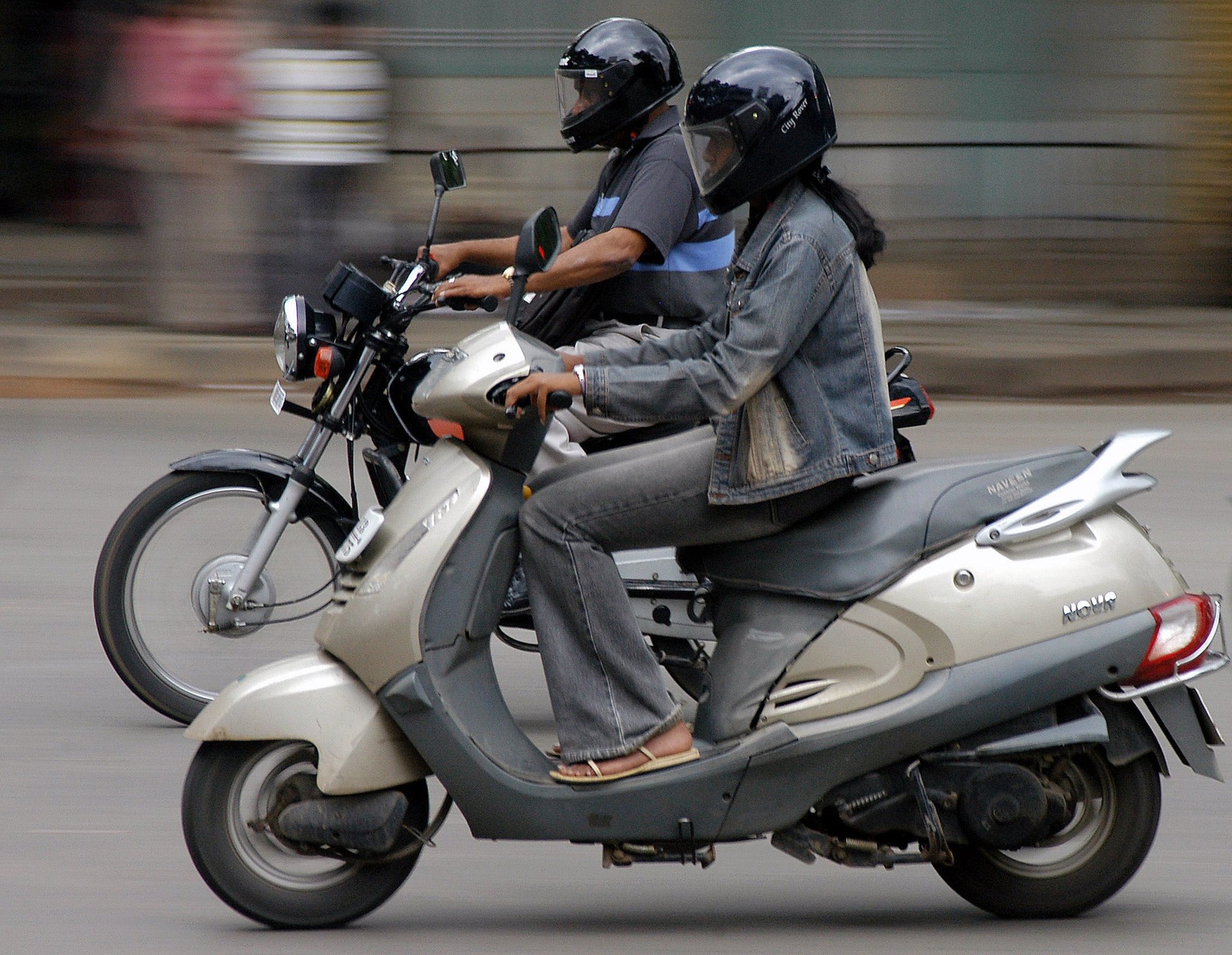The two-wheeler rules Indian streets, but bike-taxi startups are struggling to succeed
India has around 75% more two-wheelers than cars, analysts estimate. Yet, the country has not seen a single bike-taxi startup thrive even as homegrown cab-hailing venture Ola is now valued at over $4.3 billion (Rs29,988 crore).


India has around 75% more two-wheelers than cars, analysts estimate. Yet, the country has not seen a single bike-taxi startup thrive even as homegrown cab-hailing venture Ola is now valued at over $4.3 billion (Rs29,988 crore).
Most of the bike-taxi firms launched in recent years shut shop before turning one. This includes Dot, TuWheelz, Rideji, Headlyt, Heybob, and Zingo.
A handful of such startups still operate though, including Gurugram-based Baxi, Delhi-NCR-based Bikxie, and Bengaluru-based Rapido.
Deep-pocketed taxi aggregators Uber and Ola operate their own bike-taxis, though with little success. UberMoto was launched in 2016 and is now available in 11 Indian cities, while its cab service is present in 17. Ola’s bike-taxi service, also launched in 2016, is operational in 31 cities, as against the 110 where its cabs ply.
In stark contrast is Indonesia, another Asian country where two-wheelers are popular. The island nation already has a unicorn bike-taxi firm, Go-Jek.
“Bike-taxis in Indonesia were adopted easily because traditionally that has been the mode of transport there,” Aravind Sanka, founder of Rapido, told Quartz. “In India, there are cultural and societal challenges like sitting behind a stranger, rider safety and so on. It will require a certain amount of awareness creation and we are working towards it.”
Bikes don’t work
The biggest challenge for bike-taxis in India has been tackling regulations. Often, state transport authorities refuse to recognise the service as legal. Such an unfavourable regulatory situation has kept investors away.
In India, all commercial vehicles under the Motor Vehicles Act, 1988, require a yellow number plate, but not two-wheelers.
While the Indian government has tried to resolve the issue, the draft guidelines issued by the central government in December 2016 allow state governments to draft their own transport regulations. Since December 2017, Telangana, Rajasthan, and Uttar Pradesh have authorised and approved commercial bike-taxi services. Haryana has also introduced bikes as a public service vehicle, while Goa has always had bike-taxis.
However, many other states are yet to amend their laws. In fact, in Karnataka and Telangana (which house India’s tech capitals Bengaluru and Hyderabad, respectively), bike-taxis that had begun operations were seized by authorities owing to a lack of legal clarity.
Ola and Uber declined to comment for this story, fearing a backlash from authorities.
Making business sense
Ola, industry sources said, eventually plans to cross-leverage its bike-taxis for food delivery. In December, it invested in the online scooter-rental platform, Vogo.
However, the segment is still just a “second-priority” for both Ola and Uber, an analyst said, requesting anonymity. “There’s a reason why Uber and Ola are pushing for their food-delivery business more than bikes. Bikes can actually cannibalise part of their cab business, which is a higher revenue generator,” he said.
On the contrary, urban mobility expert BS Reddy believes bike-taxis could help the two companies have a stake in each form of transport, further widening their duopoly.
Ola plans to expand its bike-taxi service to 25 more cities in the coming months, a company source said, requesting anonymity. If that happens, it would make the chances for small startups to venture into the segment even harder.
Biking startups
To tackle the tough regulatory environment and competition, the surviving startups in the segment are thinking out of the box.
For instance, Rapido is positioning itself in a way that doesn’t put it in direct competition with taxi aggregators. “We want to appeal to users who cannot afford a cab on a daily basis,” Sanka said.
The company plans to tap short commuting distances to and from metro stations. It has already tied-up with Hyderabad Metro to park bikes in and around stations and is scouting for similar partnerships in other states.
“We see a huge opportunity for last/first mile and quick commute options,” Sanka said. “It also makes sense for us to tap the tier 2 cities, a huge addressable market, with short distances but large populations.”
In cities such as Bengaluru, where the regulations are still not favourable, Rapido operates a peer-to-peer ride-sharing service, which accounts for 55% of its bike-taxi revenue currently.
Wanting to utilise its current fleet of bikes, Rapido has begun deliveries for pharmacies and local supermarkets. It is now partnering with food aggregator Swiggy to provide its bikes on demand for deliveries.
Baxi, which raised funds in July, used the money to expand into deliveries, too. The company tied up with Mother Dairy and Patanjali to deliver goods for them. The service is expected to go live in January.
Hopeful that it will be able to sustain its business with a focus beyond just ferrying commuters on two-wheelers, Rapido is now looking for fresh funding. However, it is banking more on its delivery vertical than the taxi business.